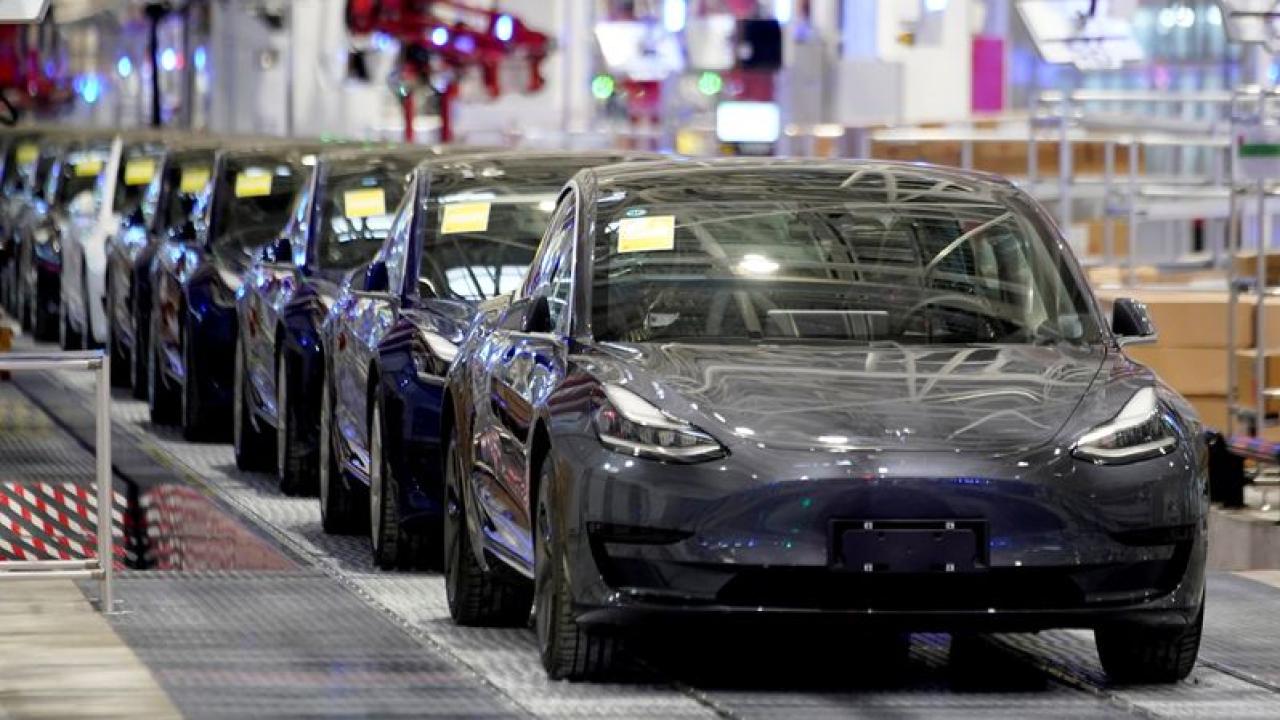
It will also apply specific tariff increases for some 387 product categories.
The United States will apply the increase in tariffs from 25% to 100% for the import of electric vehicles from China from next August 1, when the increases on the purchase of batteries, microchips for the technology industry and medical products will also come into force. as published this Wednesday by the office of the US Trade Representative.
It will also apply specific tariff increases for some 387 product categories. These tariffs are expected to begin to be implemented over the next two years and will be introduced gradually.
These punitive trade measures imposed by Washington against Beijing include, according to the Government statement, products in which China "intends to have a position of control in its production chain or in sectors in which the United States has recently made significant investments." .
In addition, Joe Biden's White House will maintain the tariffs established by his Republican predecessor, Donald Trump, increase those for the automobile industry and double those applied to semiconductors to 50%.
Specifically, according to data made public by the US Executive, the impact of these tariffs on trade between the two largest economies in the world could reach US$18 billion, affecting industries such as steel, minerals or photovoltaic panels.
THE IMPACT OF BATTERIES
One of the product categories that will be most affected by the implementation of tariffs is lithium-ion batteries, which could suffer an impact of US$13.2 billion in imports.
The increase in tariffs is scheduled to begin to be applied from January 1, 2026 on trade relations valued at more than US$ 10.9 billion.
EXCEPTIONS FOR THE SOLAR INDUSTRY
Despite everything, the United States Secretary of Commerce, Katherine Tai, has defended the application of these measures proposed by the White House because, she says, China "is stealing American intellectual property."
However, Tai has recommended tariff exclusions for imports of certain categories of industrial machinery-related products into China, including solar panel manufacturing equipment.
In this regard, the office of the trade representative has pointed out that details will be provided later on how companies will be able to request exclusions from the application of these measures, but warns that any exclusion granted will have a date from May 31, 2025.
For its part, the European Commission will announce the initial decision on the position of the Community Executive regarding the import of Chinese electric vehicles on June 5.
CHINA'S RESPONSE
In response, China has considered increasing its tariffs on imported vehicles to respond to the measures of Western countries. In fact, Beijing is considering raising tariffs on imported large-displacement vehicles to 25%.
In a statement published this Wednesday, the Chinese Chamber of Commerce in the EU claims to have "been informed by people knowledgeable in the sector" about this possible increase in tariffs and talks about the "implications" that this would have for European car manufacturers.









